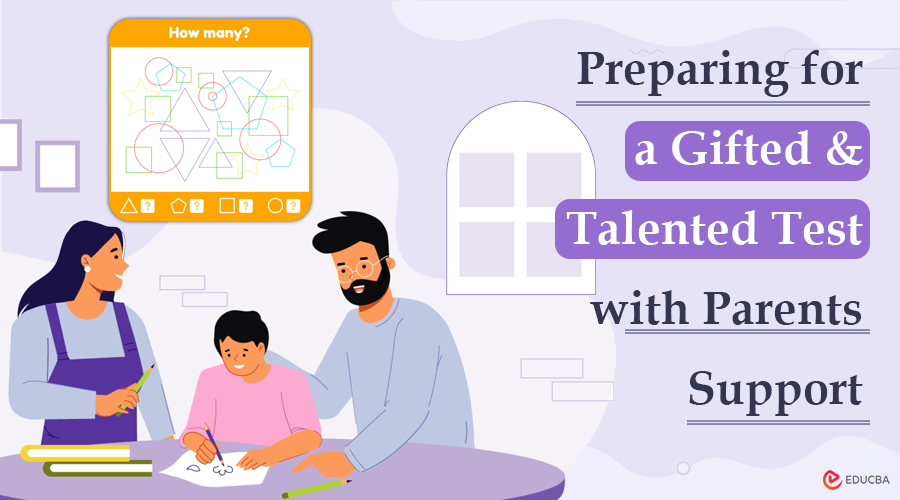Introduction
Gifted and Talented (G&T) programs provide unique educational opportunities for children who demonstrate high academic potential or exceptional abilities. Admission to these programs often requires strong performance on standardized gifted and talented tests. Whether you’re a parent guiding your child or a student preparing for your first test, this guide offers a roadmap to success.
What Are Gifted and Talented Tests?
Gifted and talented tests are designed to identify students who show advanced learning capabilities and problem-solving skills. Though the exact tests vary by program and district, common assessments include:
- CogAT (Cognitive Abilities Test)
- NNAT (Naglieri Nonverbal Ability Test)
- OLSAT (Otis-Lennon School Ability Test)
- ITBS (Iowa Test of Basic Skills)
These tests assess a blend of verbal, non-verbal, and quantitative reasoning skills. To set your child up for success, the first step is to familiarize yourself with the structure of the test they’ll be taking.
Signs Your Child Might Be Gifted
Before jumping into test prep, take a moment to explore whether a G&T program is the right fit for your child’s unique strengths and potential. Some common signs of giftedness include:
- Early reading and math skills
- Exceptional memory
- Strong curiosity and questioning behavior
- High energy and a deep focus on topics of interest
- Advanced problem-solving abilities
Teachers might also suggest testing if they consistently see your child excelling or going beyond the typical classroom expectations.
Getting Started with Test Preparation
A good start makes a big difference—set the right foundation with smart strategies for both parents and students.
For Parents:
- Create a Positive Environment: Make preparation fun and stress-free to keep your child engaged.
- Set a Routine: Consistency is key. Incorporate short, daily prep sessions rather than cramming.
- Use the Right Tools: Work with materials specifically designed for gifted test preparation.
For Students:
- Understand the Purpose: Knowing why the test matters can motivate you to do your best.
- Practice Mindfully: Focus on understanding the concepts rather than just memorizing answers.
- Stay Calm and Confident: Trust in your abilities and tackle the test with confidence and a positive attitude.
Top Study Tips and Strategies
Smart study habits can boost confidence and improve performance on gifted and talented tests.
- Start Early: Begin preparation several weeks or months before the test.
- Use Practice Tests: Simulate the actual test experience with full-length sample tests.
- Improve Weak Areas: Identify and spend extra time on topics that are challenging.
- Play Brain Games: Engage in logic puzzles, strategy games, and mental math activities.
- Focus on Time Management: Practice pacing to ensure every section is completed on time.
Recommended Resources
One of the best ways to ensure effective preparation is by using high-quality materials. We recommend using a comprehensive platform that provides gifted and school test preparation materials:
- Practice questions and tests for major gifted exams
- Skill-building exercises in verbal, non-verbal, and quantitative reasoning
- Tips for parents and students
- Affordable test prep packages tailored by grade level
These resources help students feel confident and perform at their best.
After the Test: Next Steps
Understanding your child’s results and knowing what to do next is key to making informed decisions.
- Review the Results: Understand how to interpret score reports, including percentile ranks.
- Know the Cutoffs: Each program may have different score requirements for admission.
- Explore Options: If your child qualifies, research the available gifted programs.
- Consider Retesting: If your child narrowly misses the cutoff, retesting may be an option.
Supporting Gifted Learners Beyond the Test
Being accepted into a gifted program is just the beginning. Continue supporting your child’s growth by:
- Encouraging independent projects and creative thinking
- Providing access to enrichment resources like books, science kits, or museums
- Communicating regularly with teachers to tailor instruction to your child’s needs
Common Mistakes to Avoid
Steer clear of these pitfalls to make gifted and talented test preparation a healthy, effective experience.
- Over-preparing: Too much pressure can lead to burnout and anxiety.
- Ignoring Emotional Needs: Gifted students can also struggle socially or emotionally.
- Relying Only on Scores: Some gifted children may not perform well on standardized tests.
Final Thoughts
Preparing for a gifted and talented test should be a balanced, supportive experience. While achieving a high score is important, it’s equally vital to nurture your child’s love of learning and emotional well-being. Remember, giftedness is a journey—and with the right support, your child can thrive both inside and outside the classroom.
Recommended Articles
We hope this guide on Gifted and Talented test preparation has provided you with valuable insights for supporting your child’s journey. For more information and helpful resources, check out these recommended articles:


